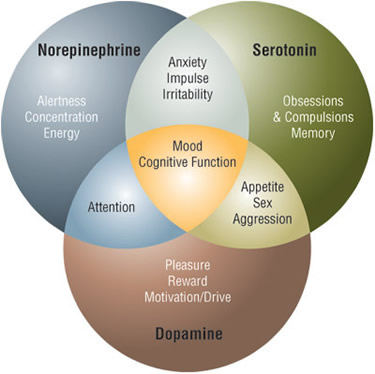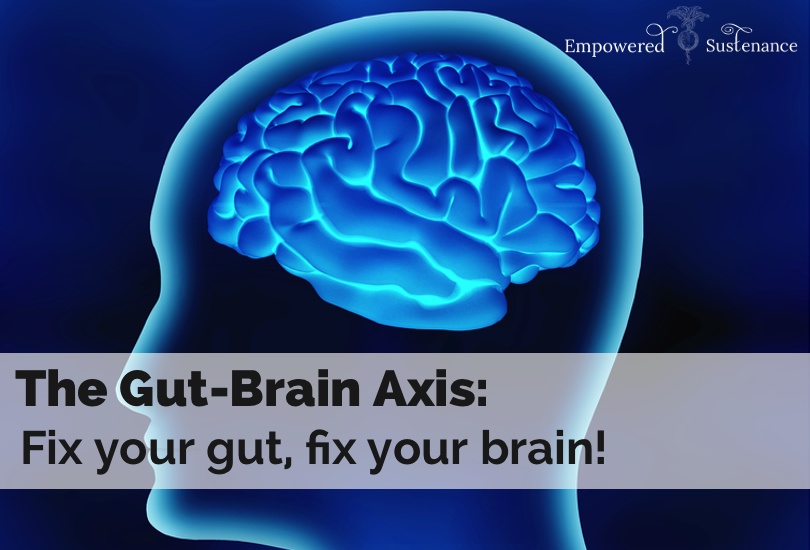Neurotransmitters effects

Neurotransmitters effects alongside the proteins, minerals, vitamins, carbohydrates, and fats are the essential nutrients that make up your body.
Neurotransmitters effects: Available support supplement
Proteins, minerals, vitamins, carbohydrates, and fats are the essential nutrients that make up your body. Proteins are the essential components of muscle tissue, organs, blood, enzymes, antibodies, and neurotransmitters in the brain. Your brain needs the proper nutrients every day in order to manufacture proper levels of the neurotransmitters that regulate your mood. The following are some of the neurotransmitters effects as denoted by the experts from the AWAREmed health and wellness resource center under the leadership of doctor Dalal Akoury MD:
- Control the appetite center of the brain.
- Stimulates Corticotrophin Releasing Factor, Adrenocorticotropic Hormone, & Cortisol.
- Regulate male and female sex hormone.
- Regulates sleep.
- Modulate mood and thought processes.
- Controls ability to focus, concentrate, and remember things.
- The Mind Body Connection.
- The chemistry of our bodies can alter, and be altered by our every thought and feeling. Our bodies and our minds are truly interconnected; the health of one depends on the health of the other.
There are many biochemical neurotransmitter imbalances that result in mental health symptoms such as:
- Adrenal dysfunction
- Blood sugar imbalance
- Food and Chemical allergy
- Heavy Metal Toxicity
- Hormone imbalance
- Nutritional Deficiency
- Serotonin/Dopamine/Noradrenalin imbalance
- Stimulant and drug intoxication
- Under or overactive thyroid
Neurotransmitters effects: Neurotransmitter Imbalances
Disrupted communication between the brain and the body can have serious effects on one’s health both physically and mentally. Depression, anxiety and other mood disorders are thought to be directly related to imbalances with neurotransmitters. The four major neurotransmitters that regulate mood are Serotonin, Dopamine, GABA and Norepinephrine.
This is the brain’s braking system, it prevents the signal from continuing. The inhibitory system slows things down. Serotonin and GABA are examples of inhibitory neurotransmitters.
GABA (Gamma amino butyric acid)
GABA is the major inhibitory neurotransmitter in the central nervous system. It helps the neurons recover after transmission, reduces anxiety and stress. It regulates norepinephrine, adrenaline, dopamine, and serotonin; it is a significant mood modulator.
This is one of the most common contributors to mood problems. Some feel it is a virtual epidemic in the United States. Serotonin is key to our feelings of happiness and very important for our emotions because it helps defend against both anxiety and depression. You may have a shortage of serotonin if you have a sad depressed mood, anxiety, panic attacks, low energy, migraines, sleeping problems, obsession or compulsions, feel tense and irritable, crave sweets, and have a reduced interest in sex.
Additionally, your hormones and Estrogen levels can affect serotonin levels and this may explain why some women have premenstrual and menopausal mood problems. Moreover, daily stress can greatly reduce your serotonin supplies.
The Excitatory Neurotransmitter System
This can be related to your car’s accelerator. It allows the signal to go. When the excitatory neurotransmitter system is in drive your system gets all raved up for action. Without a functioning inhibitory system to put on the brakes, things (like your mood) can get out of control. Among other things, the following should be in place to restore neurotransmitters in an attempt to achieve weight loss:
- Epinephrine
- Dopamine
- Glutamate
- Neurotransmitter Levels
Finally, we will be looking at the four in details in our next article but in the meantime, we want to appeal to you to stay on the link and learn more. However for any immediate concerns, you can always call on doctor Akoury with all your questions and they will be addressed professionally.
Neurotransmitters effects: Available support supplement
http://www.awaremednetwork.com/









